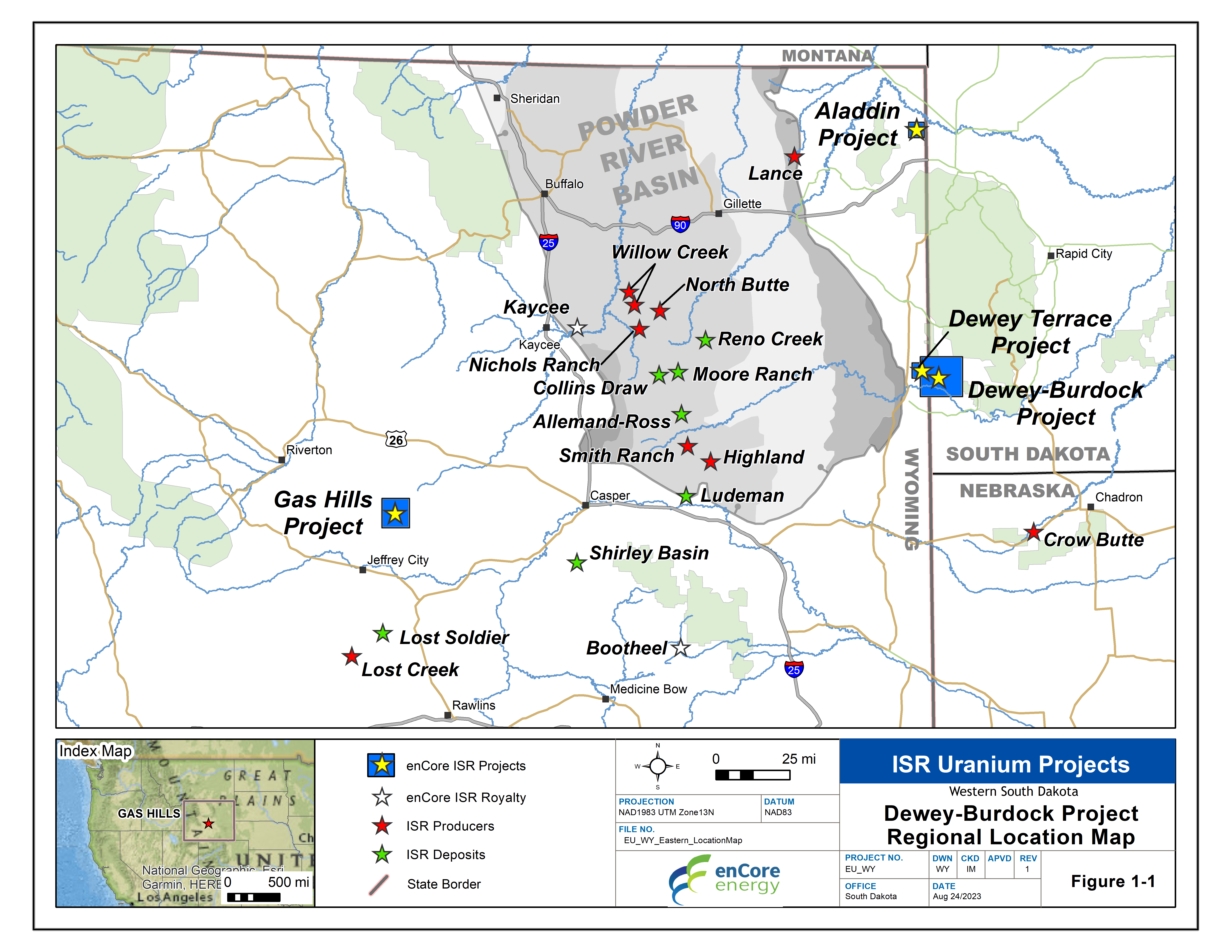Uranium mining proposal by Powertech failed to disclose necessary records
 RAPID CITY – Opponents of uranium mining in the Black Hills argue for the reform of a 150-year-old mining law. Recently, they achieved a small victory in their efforts to halt a uranium mining projects in Fall River and Custer Counties.
RAPID CITY – Opponents of uranium mining in the Black Hills argue for the reform of a 150-year-old mining law. Recently, they achieved a small victory in their efforts to halt a uranium mining projects in Fall River and Custer Counties.
The decision by the Environmental Protection Agency’s (EPA) Environmental Appeals Board to send back Powertech/enCore Energy’s Underground Injection Control (UIC) permit to mine uranium in a formerly mined area known as the Dewey Burdock area will require full public participation.
A press release from the Oglala Sioux Tribe (OST), who challenged the original project permit, had asked the Board to reconsider their permitting decision saying that the project was not only rushed but also illegal. The EAB had identified disclosure failures of necessary records. The EAB’s decision reopens the permitting process and requires the EPA to reconsider the application and decide whether to reissue or deny the permits that Powertech will need to inject chemicals into the aquifer to leach uranium.
In-situ leaching, or ISL, involves injecting a corrosive solution into an aquifer through multiple wells. This dissolves the underground rocks, releasing uranium and other heavy metals like arsenic, cadmium, mercury, and lead into the solution. Only a small amount of uranium is actually extracted. The remaining toxic wastewater laden with heavy metals is then re-injected until it becomes saturated and is no longer even suitable wastewater. This mining technique poses environmental risks by contaminating groundwater with hazardous chemicals and radioactive materials. Indigenous communities have raised concerns about the threats ISL mining poses to their lands, waters, and way of life, viewing it as a continuation of historical exploitation and disregard for Native rights.
OST Water Resources Director Reno Red Cloud said this decision was rushed and illegal and came at the close of the Trump Administration. He said this decision is significant. “The ruling provides the EPA flexibility to finally grant the Tribe’s longstanding requests to require Powertech to fund or complete the required groundwater tests and a cultural resources survey of the renowned historic site it seeks to mine.”
Previous abandoned mining operations in this area left more than 7,500 boreholes, unclosed or improperly closed in two different explorations over 10 years, according to a brief history of the mined area provided by Independent Volunteers of the Black Hills (IVHB) a coalition of concerned citizens.
The Black Hills Clean Water Alliance (BHCWA) has been pushing for mining reform. Dr. Lilias Jarding from the BHCWA said that if past experience is any indication, a second Trump Administration would focus on further deregulating and speeding along mining-related industries. “I don’t know how long it will take to go through the EPA permitting process again. It depends to some extent on who is elected President,” she said noting how the project was rushed through just before the end of Trump’s term. “There is some chance the permit would be rejected in a second process, but it might just be upheld – again depending somewhat on who is elected in November.”
There are problems emerging in the Black Hills that were created by disclosure failures and lost documents from previous mining operations, for example the Hideaway Hills neighborhood where a portion of it has collapsed. Lost paperwork has stymied any efforts to hold anyone accountable. Jarding says the cleanup of past uranium activities has cost many tens of millions of dollars. “They’ve been working on one uranium mill site in Utah for almost 20 years now. As for gold, just the attempt to clean up the Guild Edge gold mine near Deadwood has cost over $140 million dollars and the problem is not solved by any means. There are over 1300 old mines in the Black Hills,” said Jarding, citing South Dakota School of Mines and Technology and State documents.
(Contact Marnie Cook at cookm8715@gmail.com)
The post Uranium mining proposal by Powertech failed to disclose necessary records first appeared on Native Sun News Today.
Tags: Top News
